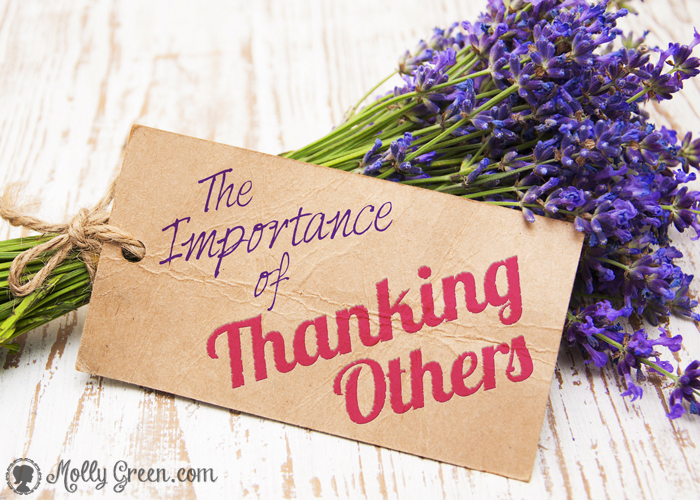By Alyce Repko
Several years before I resigned my tenure as a public school teacher, I started to reflect upon my years at that district. The administration was basking in the heady power of government money with the result of a stressed faculty. It wasn’t the teachers’ fault, but appreciation of each other was missing. I realized that, in general, neither my peers (myself included) nor the administration, thanked anyone much beyond a cursory, “Thanks.” Wanting to do for others that which wasn’t done for me, I determined to start by writing a proper note of gratitude when the occasion arose.
I purchased a book on how to write a proper thank you and it wasn’t long before I used the book’s advice. When I was unsure how to proceed with some new procedures, I was referred to a coworker who knew what to do; she willingly helped me. I most certainly thanked her at the time, but I did not forego writing a proper thank you. Using a blank note card, I expressed my gratitude for her help and meant every word I wrote. What happened afterward, however, took me by surprise. The recipient was overwhelmed that I would write such a note. She loved it. This in turn, brightened my day that I had made her happy, and I was able to share in her happiness.
It is not a requirement that a person respond to a note of appreciation. I consider it personal character building. Acts of thankfulness are the right thing to do and the recipient’s response is secondary.
Another time a lower level administrator had helped me quite a bit on different matters over the years. I did not write a thank you note to him when I resigned. This, of course, was in error. A year later, my daughter came upon a chance meeting with this person, and he asked how I was. I was taken aback. I corrected my error and wrote a letter of gratitude to him. At the time I thought he would not take it seriously, but he did. I did not find out until years later.
I may be in error, but I have found there are some situations where constant thank you notes do not necessarily work well. A music teacher who consistently gives extra time to the lesson, or a friend who consistently helps out when help is needed, are both good examples. Continually writing notes of gratitude could become redundant. Instead, I choose a very inexpensive food gift, made or purchased. A dozen fresh eggs from our chickens has also been a welcomed option. When I present the item, I usually tell the person that I thought they would like it and thank them for their generosity one more time. Not all recipients are comfortable with this and each situation must be evaluated individually. The gifts should be intermittent at best. I will, at times, write e-mail appreciation notes when I consider it the best venue given the circumstances.
Letters of condolence should express gratitude for knowing the person who has passed on. It should be more than a purchased card. Not only should it express your sympathy for the family’s loss, but also remembrances of the deceased by stories that were told, or your own experiences.
The most important thank you, however, is thanking and praising God. Psalm 100:4 says, “Enter into his gates with thanksgiving, and into his courts with praise: be thankful unto him, and bless his name.” I have always taken this verse literally, that when we thank the Lord, we are at His gates, but when we praise God, we are in His courts. I spend each day thanking and praising God for things small and large as they arise. While it is good to help man, it is much better to please God.
When I began writing thank you notes, I did not understand the benefit to both the recipient and me—it is a blessing to the both of us. It grounds my focus on what is important in today’s devolving society, and allows the recipient to know that he or she is appreciated.
Alyce is the wife of a hard-working husband and the mother to six adult children who live in five different states. On their six-acre farm they raise rabbits, chickens, and sheep. She puts up food, does freelance artwork, plays with a local orchestra, knits, sews, and buys too many books.





